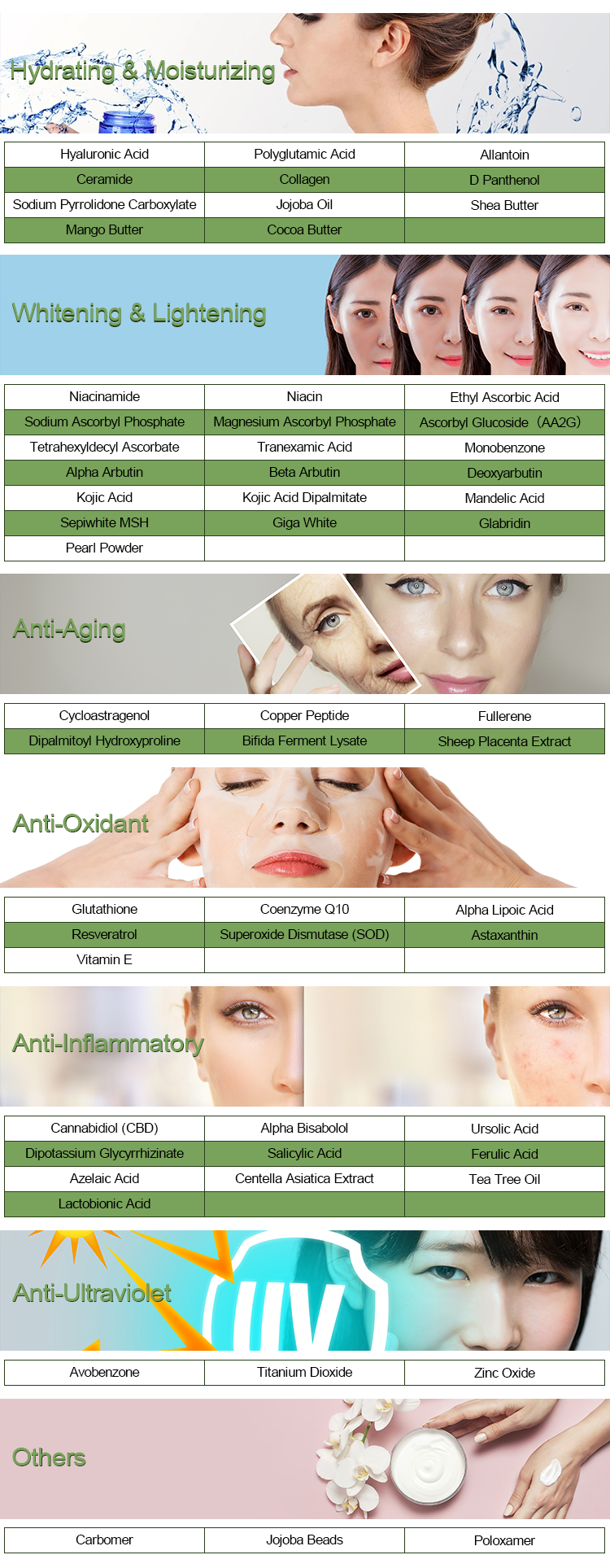Beta Arbutin, also known as β-Arbutin, is a naturally occurring compound found in certain plants. It is a glycosylated hydroquinone, which means it is a hydroquinone molecule attached to a sugar molecule. The primary plant source of beta arbutin is the bearberry plant (Arctostaphylos uva-ursi), but it can also be found in other plants like pear skins, cranberries, and blueberries.
Beta arbutin has gained popularity in the skincare and cosmetic industries due to its potential skin-brightening and lightening properties. When applied topically, it is believed to inhibit tyrosinase, an enzyme involved in melanin production. Melanin is the pigment responsible for giving our skin its color. By reducing melanin production, beta arbutin may help to fade dark spots, hyperpigmentation, and melasma, resulting in a more even skin tone.

One of the main advantages of beta arbutin over regular arbutin is that it is considered more stable and less prone to oxidation, making it more suitable for use in cosmetic products.
It’s important to note that while beta arbutin is generally considered safe for topical use, like with any skincare ingredient, individual reactions can vary. If you’re considering using products containing beta arbutin, it’s advisable to do a patch test first to check for any adverse reactions. Additionally, consult a dermatologist or skincare professional for personalized advice and recommendations.
Potential Benefits of Beta Arbutin
As of my last update in September 2021, Beta Arbutin is a derivative of hydroquinone and a naturally occurring compound found in certain plants like bearberry (Arctostaphylos uva-ursi). It is often used in skincare products for its potential benefits, particularly in treating hyperpigmentation and improving skin appearance. However, it’s essential to note that individual results may vary, and it’s always best to consult with a dermatologist or skincare professional before incorporating any new product into your skincare routine.
Here are some potential benefits of Beta Arbutin:
Hyperpigmentation reduction: Beta Arbutin is known for its ability to inhibit the enzyme tyrosinase, which is involved in melanin production. Melanin is responsible for skin pigmentation, and excessive production can lead to dark spots, sunspots, and uneven skin tone. By inhibiting tyrosinase, Beta Arbutin can help reduce the appearance of hyperpigmentation and even out skin tone.
Skin brightening: Due to its ability to hinder melanin production, Beta Arbutin can help brighten the skin, giving it a more radiant and youthful appearance.
Anti-aging properties: Some studies suggest that Beta Arbutin may have antioxidant properties, which can help protect the skin from free radicals and environmental damage, potentially slowing down the aging process.
Safe alternative to hydroquinone: Hydroquinone is a common ingredient used for treating hyperpigmentation, but it can cause skin irritation and sensitivity in some individuals. Beta Arbutin is considered a milder and safer alternative to hydroquinone, with fewer side effects.

Suitable for sensitive skin: Beta Arbutin is generally well-tolerated, making it a suitable option for individuals with sensitive skin or those who cannot tolerate more potent skin-lightening agents.
Moisturizing benefits: Some products containing Beta Arbutin may also include moisturizing ingredients, helping to keep the skin hydrated and supple.
Keep in mind that skincare products often contain various other ingredients, and their overall effectiveness may depend on the formulation and concentration of Beta Arbutin, as well as individual skin types and conditions. Always perform a patch test before using any new skincare product and consult with a dermatologist for personalized advice.
